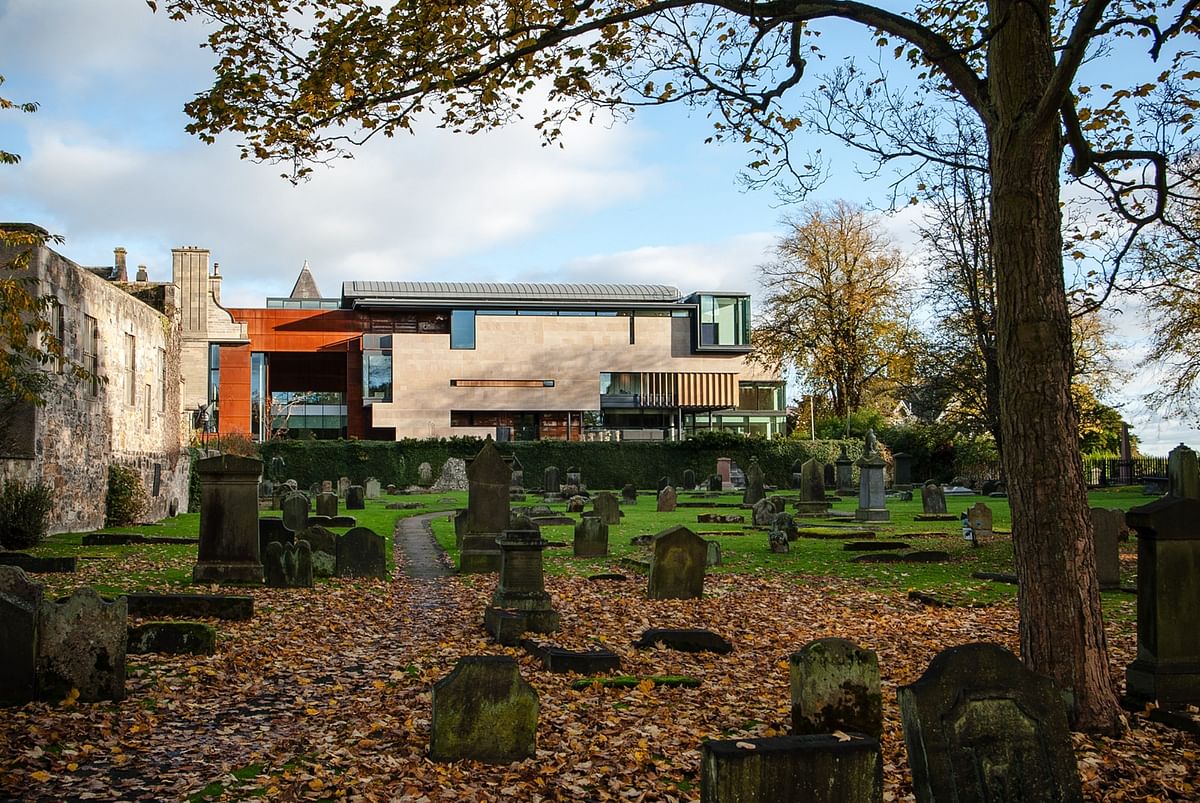
Step inside Scotland's new Dunfermline Carnegie Library & Galleries, designed by Richard Murphy Architects
By Justine Testado|
Tuesday, Jun 27, 2017
Related
After winning the 2007 competition, Edinburgh-based Richard Murphy Architects (who won the 2016 House of the Year Award) was put in charge of designing the world's first Andrew Carnegie Library & Galleries, which is located inside a Grade B-listed building in historic Dunfermline, Scotland. Ten years later, the library opened to the public this past May and has received notable praise since then — most recently a Royal Incorporation of Architects in Scotland (RIAS) 2017 Award. The project is currently shortlisted for the 2017 RIAS Best Building in Scotland Award.
Richard Murphy Architects shared more details about the project with Bustler below.
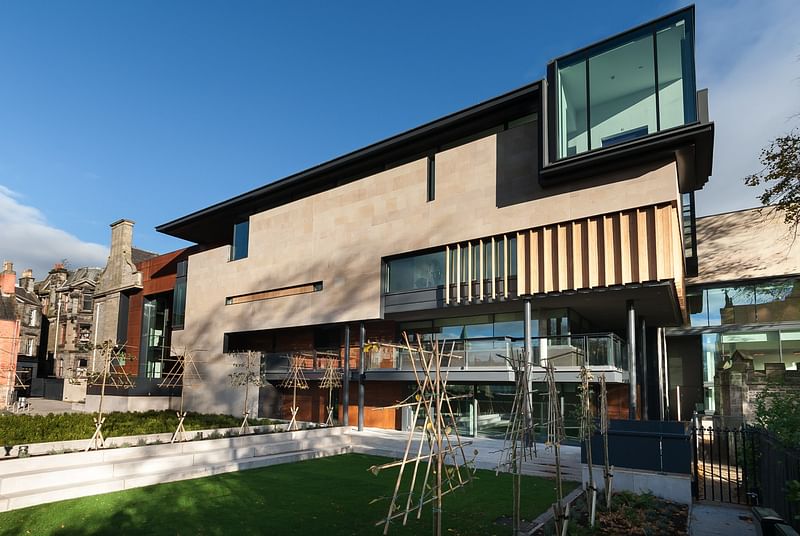
Project description: “The competition brief envisaged a museum space, art galleries, local history archive and reading room, children’s centre, café and meeting rooms integrated with the Andrew Carnegie Library. Part of the site was also a Grade B-listed former bank building.”
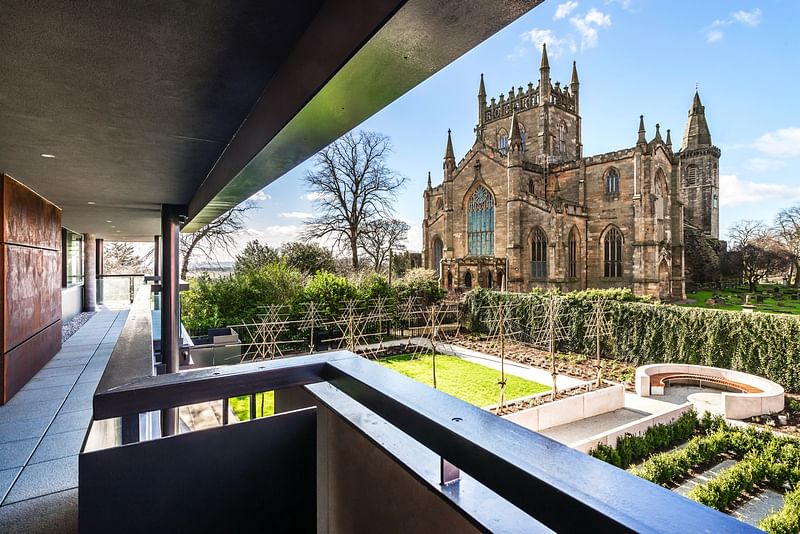
“The competition design organized the new building along a new top lit street with a journey to all the facilities criss-crossing the street on bridges to the top of the building. The Council subsequently purchased an adjacent car-park and the architect proposed to convert this into a walled garden which in turn leads to a new entrance courtyard off this garden.”
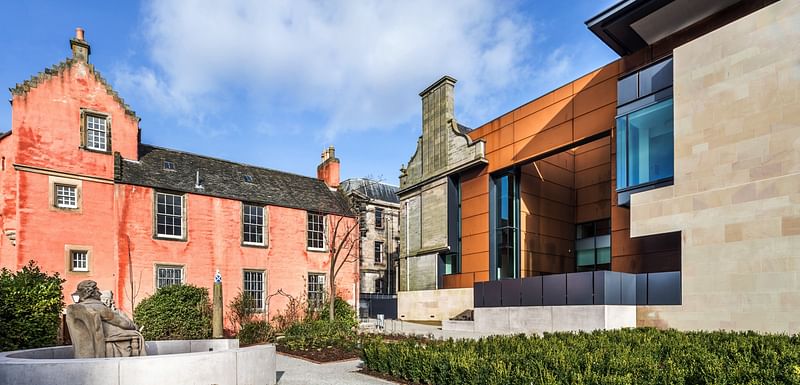
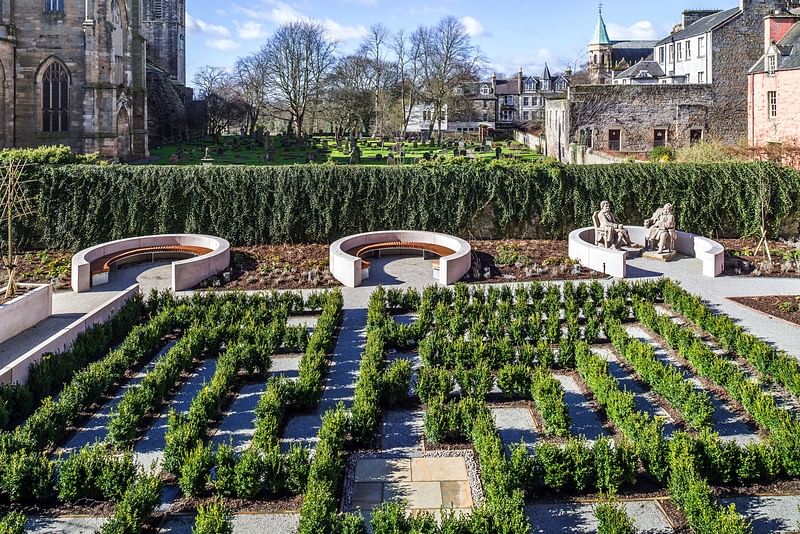
“The garden design merges with the medieval garden at the rear of the adjacent Abbott’s House Museum and includes two sculptures from Burns’ Tam O’Shanter and also a small maze.”
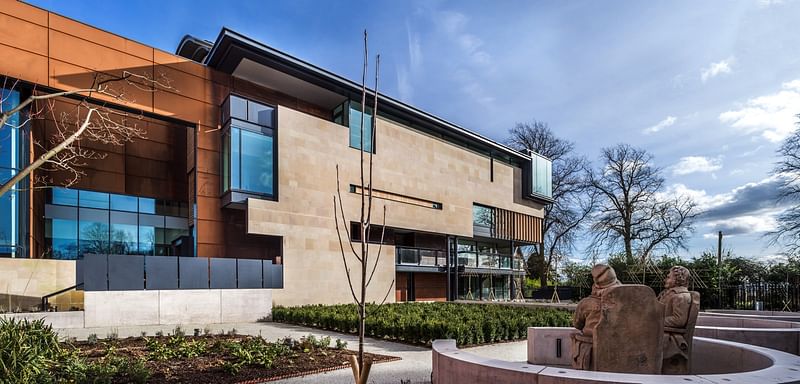
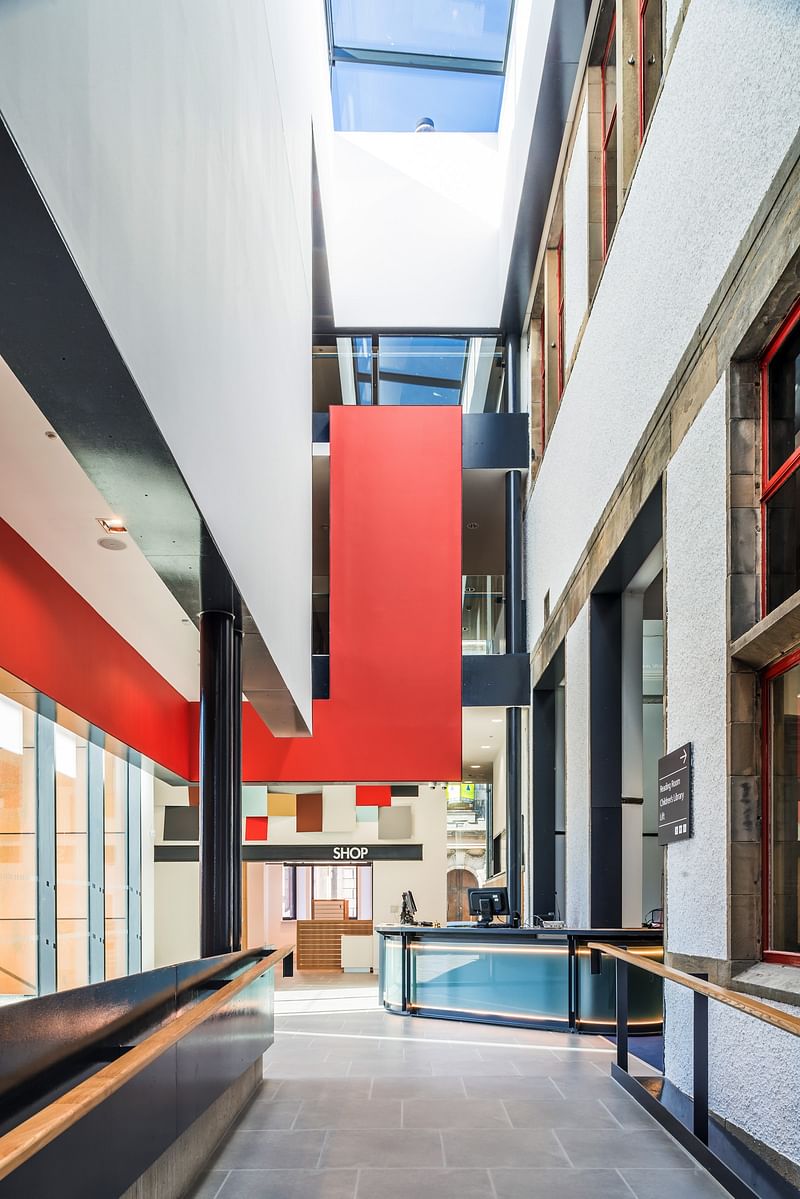
“The design maintains a top-lit internal street as its organizing device. There are three main new spaces. At the lower level is a major new facility for the research and study of local history and its archive organized on a tiered section looking out at the Abbey. The new library facilities for children is also at this level and opens directly onto a lawn and external auditorium. The café is on the first floor with terraces looking out onto the Abbey and graveyard and above this on the same level are the double level museum and the three exhibition galleries.
The circulation system is an ‘architectural promenade’ culminating in these facilities but also continuing back into the main building and allowing access to two main existing spaces in the library, the Murison Burns Room which becomes a meeting / function space and the adjacent reference library which will become an activity and lecture space.”
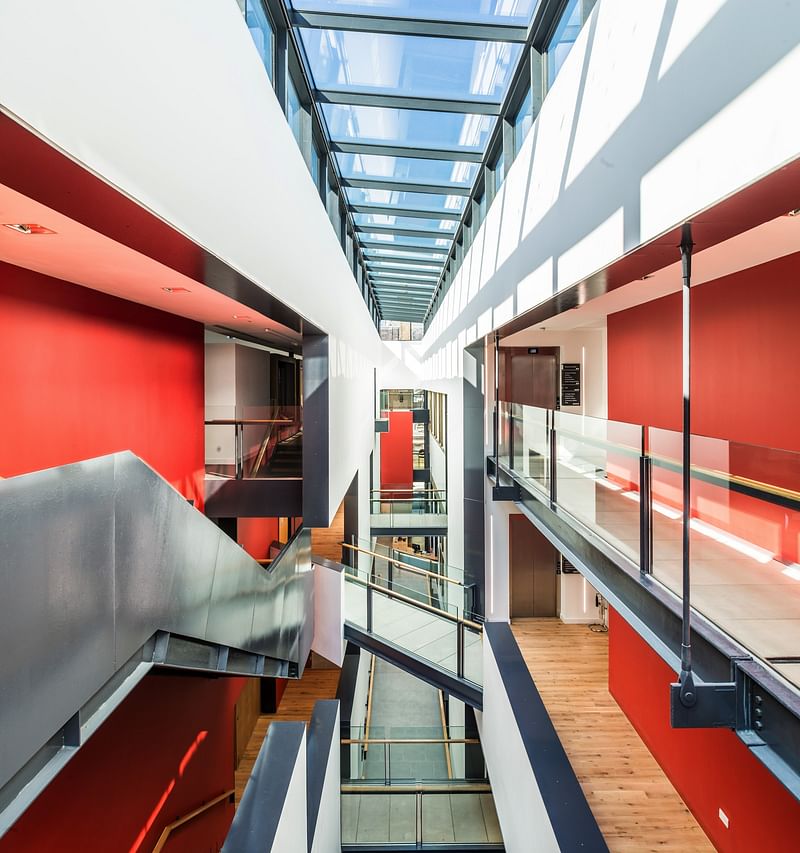
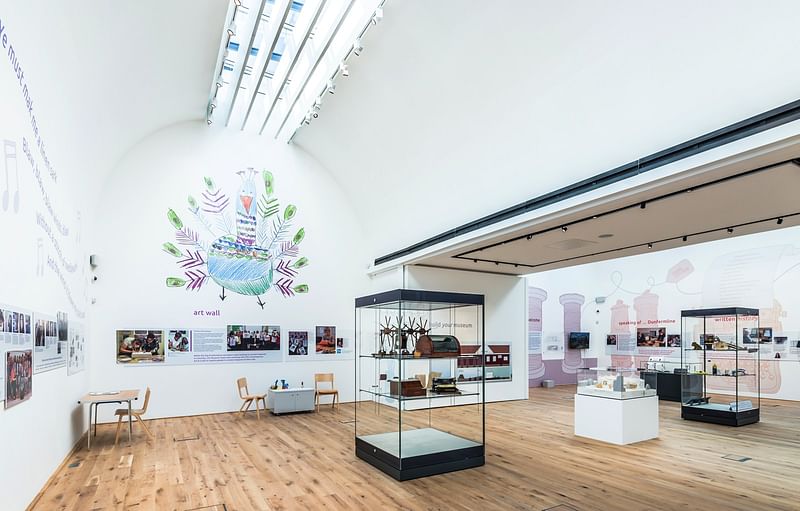
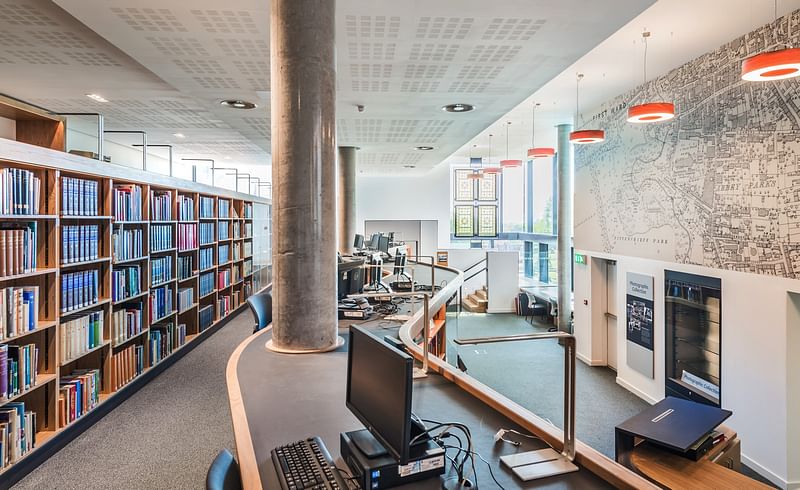
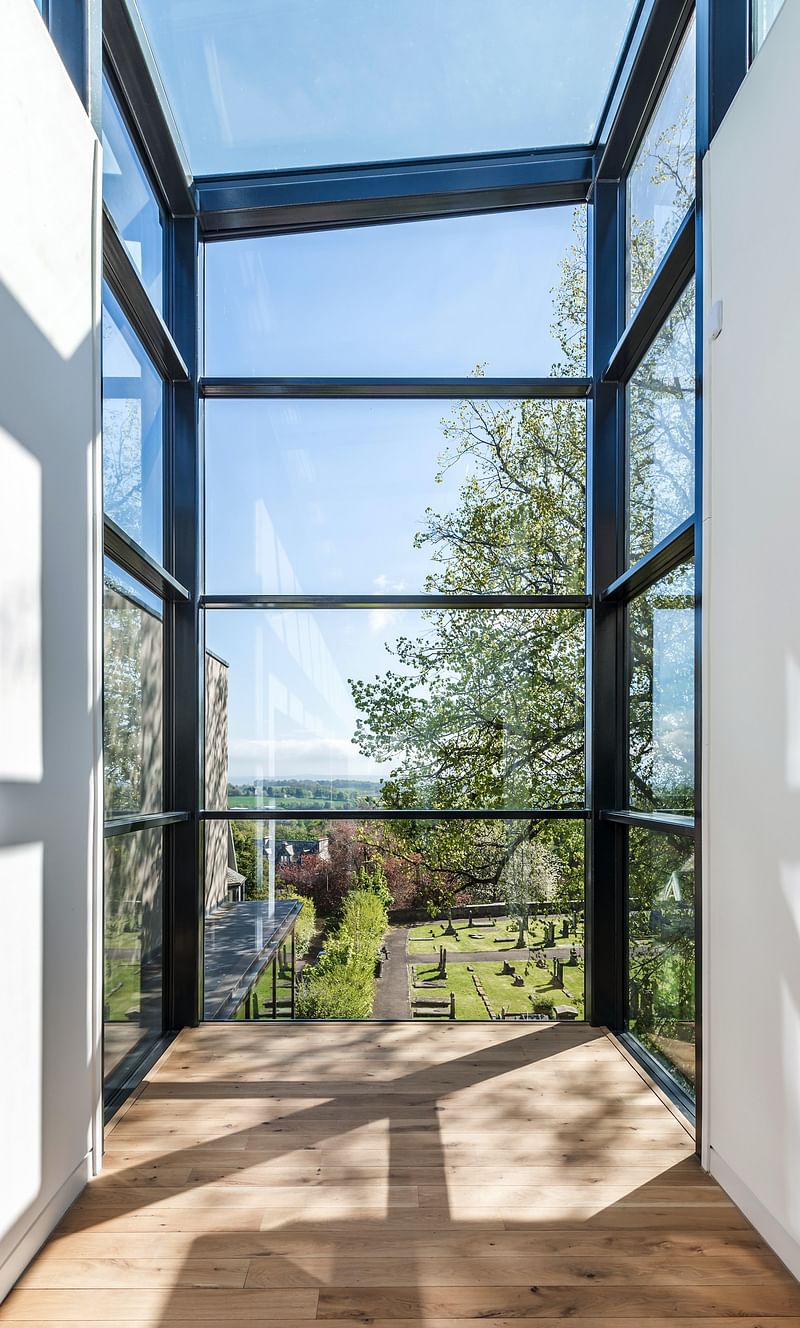
“Externally, the materials are a combination of stone, oak and corten steel. The latter is to designate the fact that a majority of the museum displays the industrial heritage of the town. A major feature of the museum itself, which has been designed in collaboration with Redman Design, is that there are internal framed views of significant nearby historic buildings.”
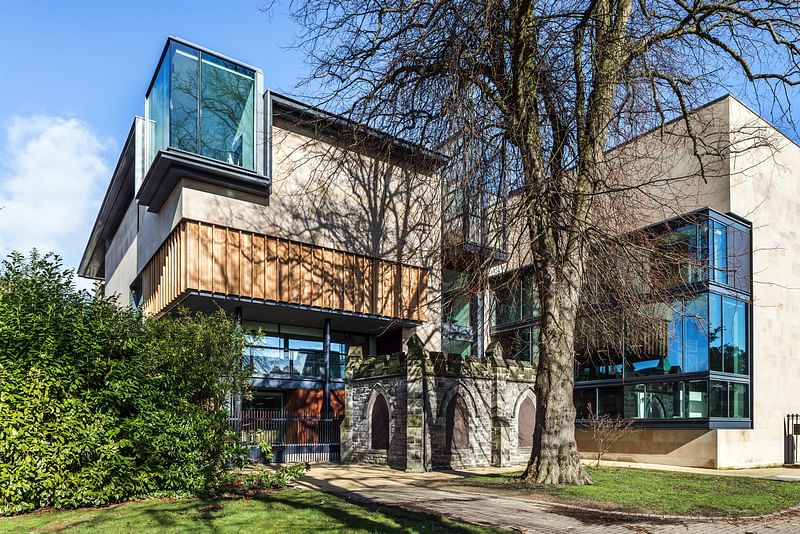
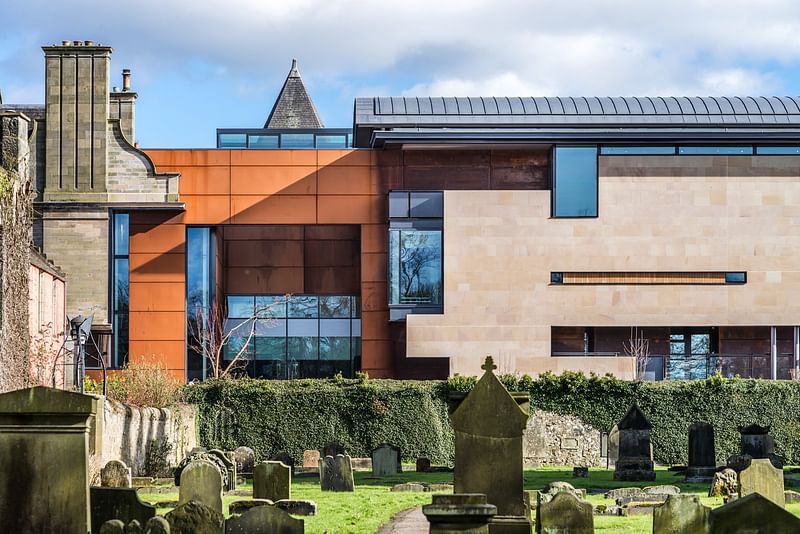
Project credits:
Architects: Richard Murphy ArchitectsStructural Engineers: Aecom
M&E Engineers: Rybka
Quantity Surveyor: Rider Levett Bucknall
Exhibition Designer: Redman Design
Fire Engineer: Atelier Ten
Contractor: BAM Construction
Construction Cost: £9.1m
Client: Fife Council
Building Operator: Fife Cultural Trust
Photos and project text courtesy of Richard Murphy Architects.

RELATED NEWS 2016 RIBA House of the Year awarded to jigsaw-like Murphy House; Tin House revealed as final shortlister

RELATED NEWS Stepping inside the New York Public Library's new Stapleton Branch by Andrew Berman Architect


Share
0 Comments
Comment as :